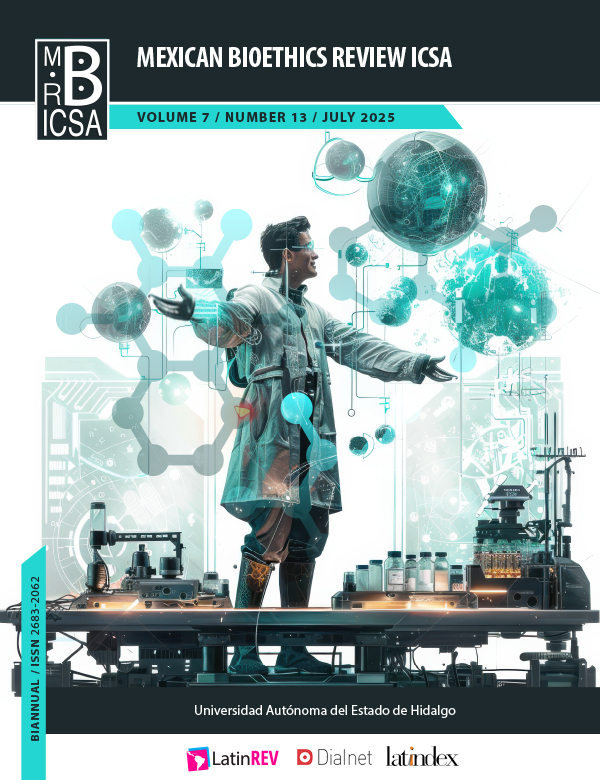The transforming role of women in territorial development: An approach from the theory of capabilities.
DOI:
https://doi.org/10.29057/mbr.v7i13.14398Keywords:
Territorial development, gender equality, women's empowerment, Feminism, Theory of capabilities, Sustainability, Social inclusionAbstract
This essay analyses women's contribution to territorial development from a gender equality perspective, addressing their role in building inclusive and sustainable communities. Through a historical and theoretical journey, it explores the structural barriers and achievements of feminist movements, highlighting the impact of women in the economic and social spheres. Employing Amartya Sen's capability theory, it examines how women's empowerment and participation enhance collective well-being and promote equitable progress. This analysis underscores the need to remove gender barriers and strengthen women's capabilities for inclusive territorial development.
Downloads
Publication Facts
Reviewer profiles N/A
Author statements
- Academic society
- N/A
- Publisher
- Universidad Autónoma del Estado de Hidalgo
References
Alvarado, M. (2018). Junturas teóricas para los feminismos del Sur. HERMENÉUTICA INTERCULTURAL, 87-110. https://ri.conicet.gov.ar/bitstream/handle/11336/91925/CONICET_Digital_Nro.e9a94cc8-5be5-42f8-a1e3-a3945f888741_A.pdf?sequence=2&isAllowed=y
Álvarez, A. (2014). La dialéctica de la Teoría Feminista: lo que nos une, lo que nos separa, lo que nos hace avanzar. Daimon. Revista Internacional de Filosofía(63), 191-2014. http://dx.doi.org/10.6018/daimon/199711
Birgit Hoinle, R. R. (2013). Empoderamiento espacial de las mujeres mediante la economía solidaria. Cuadernos de desarrollo rural, 10(72), 117-139. http://www.scielo.org.co/pdf/cudr/v10n72/v10n72a07.pdf
Bouchillou, E. (2016). El desarrollo territorial. Una respuesta emergente a la globalización. Eutopía, revista de desarrollo económico(10 (2016)). https://doi.org/10.17141/eutopia.10.2016.2533
Chaparro, A. (2023). Intersecccionalidad. TEORÍA ANTIDISCRIMINATORIA http. biblioteca signos. https://divcsh.izt.uam.mx/cefilibe/wp-content/uploads/2023/07/Interseccionalidad_Teoria_antidiscriminatoria.pdf#page=115
Collins, P. H. (2022). Black Feminist Thought 30th Anniversary Edition. New York: Routledge. https://doi.org/https://doi.org/10.4324/9781003245650
Corzo-Arevalo, D., & Cuadra, R. (2020). La integralidad del desarrollo territorial, un proceso entendido desde los conceptos: multiescalaridad, multisectorialidad y multimensionalidad. Grupo de investigación LIS, dirección. Recuperado el 29 de 10 de 2024, de https://d1wqtxts1xzle7.cloudfront.net/61840003/Articulo_desarrollo20200120-72654-hdo56r-libre.pdf?1579545981=&response-content-disposition=inline%3B+filename%3DLa_integralidad_del_desarrollo_territori.pdf&Expires=1730243599&Signature=ILO6zZ-eyVRjxbVq8u0-e
Graf, N. B. (2012). Epistemología feminista: Temas centrales. Centro de investigación interdisciplinarias en ciencias y humanidades. https://ru.ceiich.unam.mx/bitstream/123456789/3151/1/Investigacion_Feminista_Cap1_Epistemologia_feminista.pdf
Harding, S. (1996). Ciencia y feminismo. https://www.google.com.ni/books/edition/Ciencia_y_feminismo/4p7XzP7l0ngC?hl=es&gbpv=1&dq=ciencia%20y%20feminismo%20sandra%20harding&pg=PA50&printsec=frontcover
Harding, S. (1996). Ciencia y feminismo (MORATA ed.). Madrid: Ediciones MORATA. Recuperado el 28 de octubre de 2024, de https://books.google.com.ni/books?id=4p7XzP7l0ngC
Jenni Sonia Ruperti Cañarte, J. G. (30 de 08 de 2021). El desarrollo territorial y el pensamiento econ{omico. Sociedad y Tecnología. https://doi.org/https://doi.org/10.51247/st.v4i3.145
Lorde, A. (1979). Las herramientas del amo nunca desmontarán la casa del amo. (K. B. Rosa Campoalegre Septien, Ed.) Más allá del decenio de los pueblos afrodescendientes, 103. https://d1wqtxts1xzle7.cloudfront.net/96384771/Mas_alla_del_decenio-libre.pdf?1672076221=&response-content-disposition=inline%3B+filename%3DMas_alla_del_decenio_de_los_pueblos_afro.pdf&Expires=1730756249&Signature=UuGlkfja5Tmb80rp6YdTr8T9iSPR03FafFAhF3Gd4
Madruga, M. (2023). LA PRIMERA OLA FEMINISTA: MARY WOLLSTONECRAFT Y OLYMPE DE GOUGES. Revista Electrónica de la Asociación Andaluza de Filosofía(26). https://losapuntesdefilosofia.com/wp-content/uploads/2023/12/buho26.pdf#page=90
Montero, J. (2006). Feminismo: un movimiento crítico. Psychosocial Intervention, 178. https://scielo.isciii.es/pdf/inter/v15n2/v15n2a04.pdf
Narváez Ibarra, H. A., & Holguín Alvarado, F. A. (2024). FECHAC y los ODS: Informe de inversión social para el desarrollo sostenible 2022-2023. Fundación del Empresariado Chihuahuense, A. C. https://fechac.org.mx/app_fechac/_files/_img/_documents/012821-160142_rf-1-03compromisodefechacconlosodsrev1.pdf?gad_source=1&gclid=Cj0KCQiAvP-6BhDyARIsAJ3uv7ZVZSdiVk8bhtPBSisWTSwlVHQ8igHwT2YGEN6nFzsQxCAW8hHP7C0aAkalEALw_wcB
Postigo, M. (2014). Ética y Feminismo en España: 1960-2010. La Albolafia: Revista de Humanidades y Cultura, 2, 107-127. https://dialnet.unirioja.es/servlet/articulo?codigo=5135673
Schopenhauer, A. (1981). El amor, las mujeres y la muerte: y otros ensayos (Vol. V). Edaf.
Urquijo, M. (21 de 12 de 2014). La teoría de las capacidades en Amatya Sen. La teoría de las capacidades en Amatya Sen(46), 63-80. España: EDITANIA- estudios y propuestas socioeducativas. https://revistas.ucv.es/edetania/index.php/Edetania/article/view/161/136#
Downloads
Published
How to Cite
Issue
Section
License
Copyright (c) 2025 Fátima Yelina Vanegas Avilés, Martha Miurel Suarez Soza

This work is licensed under a Creative Commons Attribution-NonCommercial-NoDerivatives 4.0 International License.

















